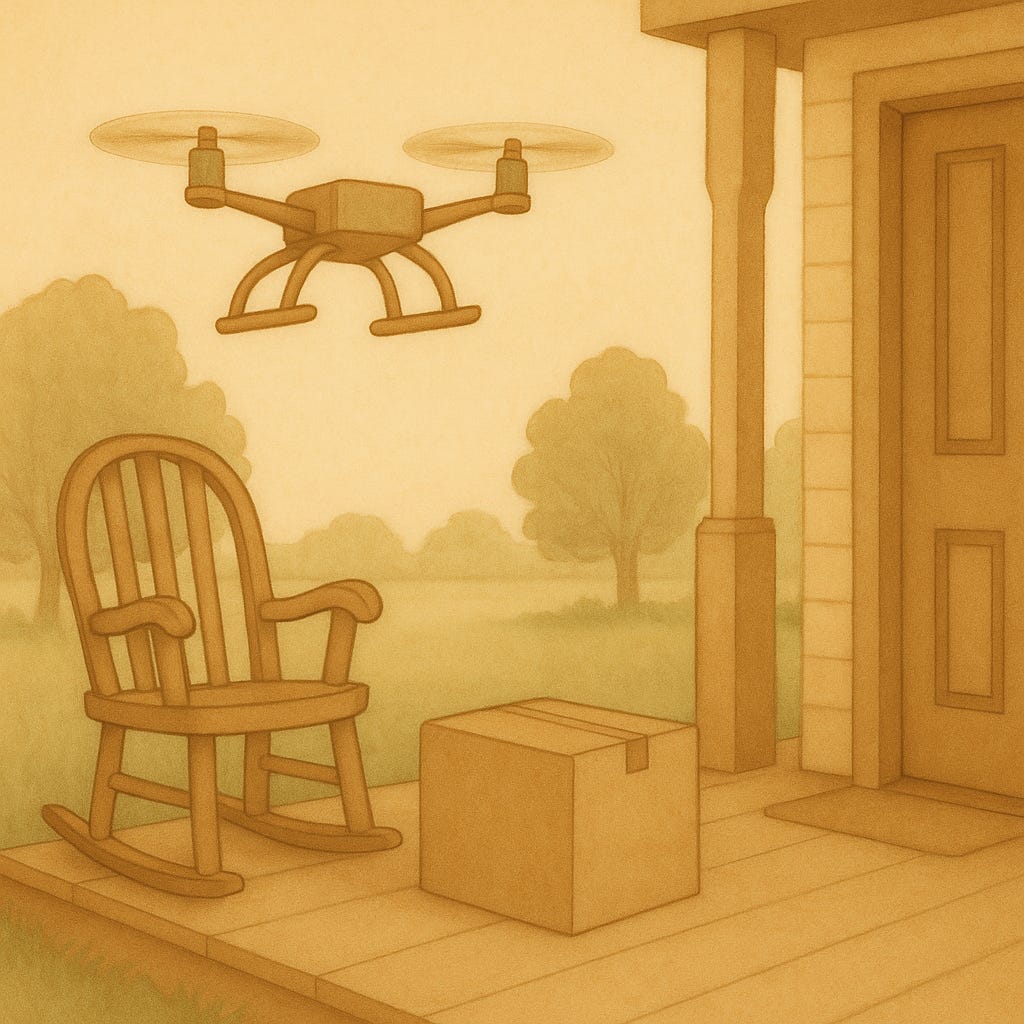“Tell the truth, don’t be afraid let your conscience be your guide.”
Now Playing: “Tell the Truth” – Otis Redding
Press play while you read.
Team,
Welcome to Volume 2 of This Life.
This week, I’m looking at where progress is unfolding quietly — beneath the headlines, inside existing systems, and in the conversations we often avoid but need to have if we’re going to build anything big.
We’ll look at an AI doctor for gig workers, drones delivering across US cities, a five-minute cancer treatment with no added cost to UK citizens, and a startup bringing personalized, preventative care to the workplace.
Plus: the generosity of telling the truth.
Mike
What I Read / Listened To / Watched This Week
🩺 AI Doctor for Gig Workers — WSJ
Akido Labs is rolling out AI-powered healthcare for ride-share drivers in NYC. Their ScopeAI system suggests diagnoses and treatments, which are reviewed by human doctors. It’s fast, remote, and built for people who’s livelihood doesn’t come with traditional sick days.📦 Drone-Delivery Is Real? — WSJ
Zipline’s drone delivery network could quietly become a real player in logistics. The company has completed over 1.3 million deliveries in the US so far. It started with medical supplies and is now expanding to retail, reshaping how things move in cities.💉The Five-Minute 'Superjab' Treating 15 Cancers — The Times
The UK just approved a five-minute cancer treatment that replaces hour-long IV infusions. The “superjab” delivers immunotherapy for 15 cancers, including lung, kidney, and skin. It’s faster, cheaper, less invasive, and comes at no additional cost to patients.
Pro tip: Don’t have a news subscription? Insert the article links into ChatGPT and ask for a summary.
What I Learned This Week
While we argue about tomorrow, others are building it today.
Not in debates or press cycles — but in five-minute cancer treatments. In AI doctors for gig workers. In drone deliveries that collapse distance and give people back their time in hours and energy.
The UK’s National Health System (NHS) rolling out life-extending care at no additional cost to patients is a reminder that systems and politics do shape outcomes. But the future isn’t being written on Twitter. It’s happening on the ground floor of companies and in policy change.
If we only look at the noise, we might miss the signal.
Company I’m Watching
Different Health is a pre-seed startup based in NYC rethinking how preventive care gets delivered. What makes their approach interesting is how they’re working within the system — partnering with corporations to bring proactive, data-driven care and performance-based coaching into the traditional healthcare model. (Think Superpower, Function, or Levels but built for employee populations.) By aligning with existing infrastructure, they could help prevention scale by meeting the system where it already operates.
Disclaimer: I recently invested in Different through Backpocket VC — a membership-based angel investing group I co-founded. We’re ~300 members strong and currently accepting new applicants. If you’re an accredited investor and want to co-invest alongside us, send me a note.
Try this on
It’s hard to build something great when everyone’s being “nice.”
Swinging for the fences means having the right team around you. Sometimes, someone isn’t the right fit right now. Or maybe they just need feedback they’ve never gotten.
That’s not good or bad — it just is.
Avoiding the truth doesn’t help. It’s not kindness, it’s control. And it’s actually kind of like… treating people small. It says:
“I don’t think you can handle this.” Or,
”I’d rather manage your reaction than be honest.”
Clarity creates movement. Vagueness keeps people stuck.
Try this:
Who in your orbit might deserve more honesty than you’ve offered?
Where are you collapsing being nice for being generous?
Open a new ChatGPT thread. Type:
“Help me give honest, kind feedback to someone I think isn’t the right fit — or just needs to hear the truth.”
Use it to prep for a conversation you’ve been avoiding. Be clear. Don’t overthink it. Just say your thing.
The truth doesn’t have to be heavy.
Most of the time, it’s just helpful — for everyone.
Peace out,
Mike





"if we only look at the noise, we might miss the signal" 👏👏👏